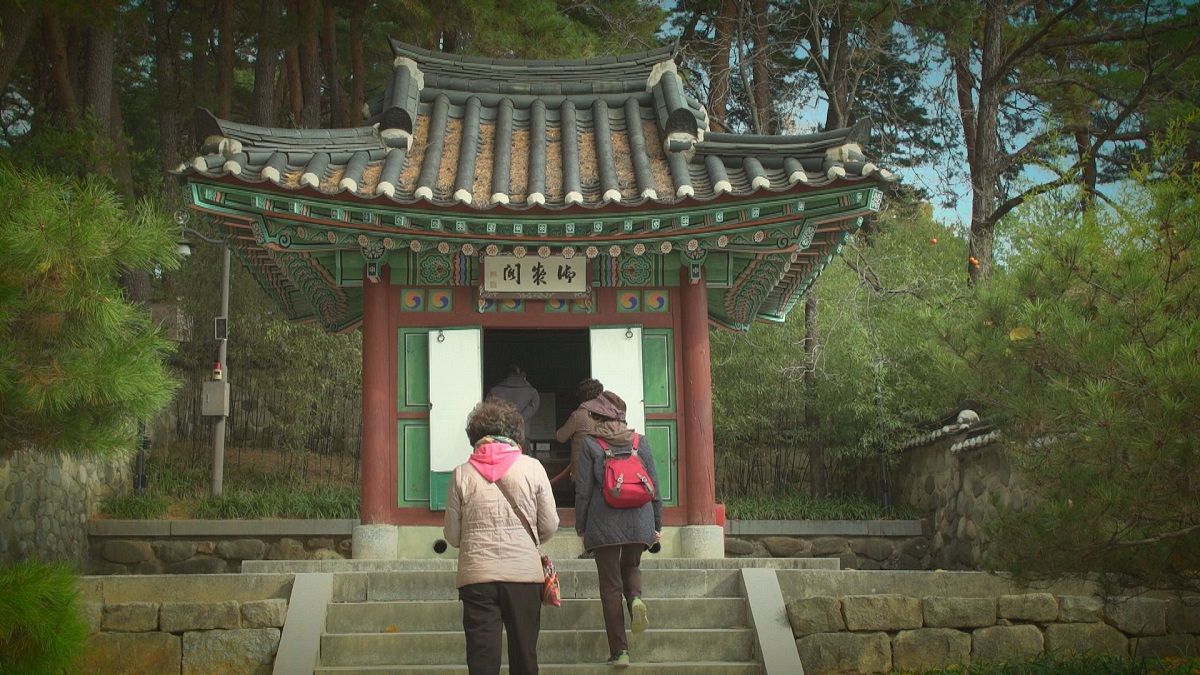This edition of Road to Pyongchang takes us to the coastal city of Gangneung, which is co-hosting the 2018 Olympics.
Gangneung, on the east coast of South Korea, will be co-hosting the Pyeongchang Olympic Winter Games in 2018.
Located less than one and a half hours from Seoul and just 10 minutes from Pyeongchang on the new high speed train, Gangneung is a popular destination among Koreans. All the Olympic ice events like hockey, skating and curling will be held in here.
A cultural experience to remember
Beyond everything the Games have to offer, the city is also keen to provide visitors with a memorable cultural experience: a rich programme or cultural events involving local traditions and foods will be on offer throughout the Olympics.
.@usfreeskiing team members visiting Korea for
pyeongchang2018</a> test events enjoyed Korean food and culture in Gangneung. <a href="https://twitter.com/hashtag/halfpipe?src=hash&ref_src=twsrc%5Etfw">#halfpipe</a> <a href="https://t.co/kogNE3ROp5">pic.twitter.com/kogNE3ROp5</a></p>— U.S. Embassy Seoul (USEmbassySeoul) 17 février 2017
Part of Gangneung’s well-preserved heritage is the Ojukheon site. It is the birthplace of the famous philosopher Yulgok, one of the fathers of Korean neo-Confucianism. The 600-year old Ojukheon House, where he was born, is one of the oldest wooden residential buildings in Korea.
Visitors to Ojukheon traditionally stop for at the memorial to burn incense and meditate.
“This temple is called MoonSeongSa,” says Han Huisuk, our guide. “It was built in 1975 in honour of Yulgok. People come here as a sign of respect and to pray for his wisdom.”
Ojukheon is also home to black bamboo, a fascinating plant, which changes colour several times throughout its life.
“Generally, we are used to bamboo being green,” says Huisuk. “But Ojukheon bamboo is black. The plant can live for 60 years. At the beginning of its life it is green. After three years it turns yellow, then brown and finally black. When it dies it goes white.”
Korean cuisine
No visit to Gangneung would be complete without a trip to the local market.
Tourists traveling here for the Games will have to visit the Jungang fish and food market, to enjoy the taste, smell and colours of Korean cuisine.
Don’t miss the Korean pancake or the fried chicken – some of the most popular among Korea’s tasty street foods.
We also tried out a traditional restaurant. Korean cuisine in this province is largely based on rice, vegetables and, of course, seafood.
“This is crab from the East Sea,” the restaurant manager, Jeo Bonh-Ja, explains. “It makes for a very tasty meal, rich with Chitosan. We also have octopus, another healthy food, and sea shells which have a beautiful texture and a very fine taste. We’ll add some Kawando squid, as this area is well known for squid. It’s all very fresh.”
Korean cuisine is famous for all its side dishes served with the meal. Koreans have perfected the art of preserving food and many of the side dishes are pickled, salted and… spicy!
“I guess you have never tasted such a seafood-rich dish. It’s very healthy. And it’s a traditional dish from this region,” says Jeo Bonh-Ja.
Throughout the 17 days of the Olympic Winter Games, sports fans and tourists will be able to enjoy an intense programme of events from across Asia.
New Horizons: sports and culture
Choi Mon-soon is the governor of Gangwon Province, which is hosting the Games: “The slogan of these Olympic Games is ‘New Horizons’,” he says. “It means a new opening for Asia. That’s why we have invited countries that do not practice snow sports, but who will be our partners for cultural events. On the one hand, there will be the sports events, and on the other, a vast choice of cultural events. It’s the first time these two types of activities are being organized together. There will be many things to see and do.”
It’s hoped South Korea will be not only be able to build up the legacy of the Winter Olympics but also establish itself as a regional cultural hub even after the Games are over.
